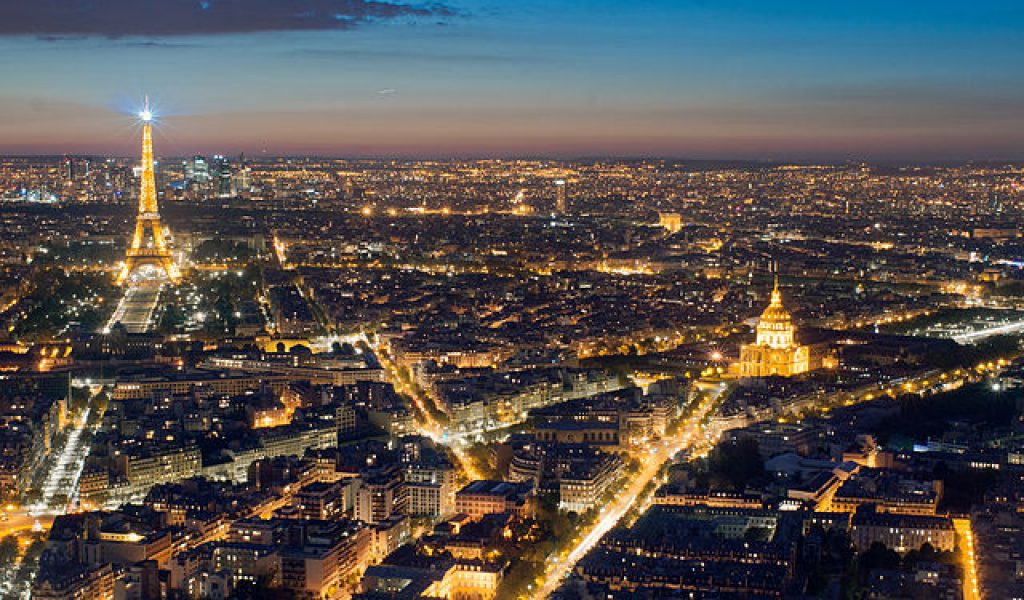Perceiving Paris: trompe l’oeil or beauty in the eye of the beholder?

Jemima Piggott discusses the idea of Paris syndrome, a form of cultural shock, in relation to her time spent living in Paris.
Lights, romance, history, fashion, and glamour. These words are perhaps what your mind is most likely to conjure up upon hearing ‘Paris’. A romanticised haven of impressive architecture, jampacked galleries and museums, coffee and croissants by the Seine, cobblestoned streets, and sweeping vistas that always seem to contain the Eiffel Tower. But is Paris really the allusion to perfection we credit it as, or is it just simply an illusion?
Basic infrastructure coming to a complete standstill, rats scurrying through masses of bin bags, classes cancelled, metro stations on fire, demonstrations weaving their way through the streets of Paris, and normal life coming to a complete halt. Or, at least, a normal life for an expat. These past months of strikes, and now protests, constitutes normal life for the French. So, what does that make Paris? Is it still ‘la vie en rose’ or is it just the ideal marching ground for protest goers?
The reputation of Paris on the screen, in social media, and in literature can often be misconstrued, encouraging a glamorised image of the city. In turn, this leads to ‘Paris syndrome’ a form of culture shock when tourists realise the city isn’t viewed through rose-tinted glasses. And yet some people find the authenticity of the strikes and the bluntness of the locals comically endearing, offering true insight into a culture beset from their own. So, to what extent is Paris’ beauty in the eye of the beholder? How much is one swayed by the glimmer of lights based on their état d’esprit?
“It isn’t the city you see in Emily in Paris but at the same time you can’t help but smile as you walk over the Seine”
Year abroad student, 20
As someone that’s dreamed their whole life of living in Paris, I was wary of the ramifications of idealising the city only to be confronted with culture shock. Yet I found that in a way, my romanticised expectations proved the opposite. I spent eight months exploring the city and finding beauty in the art and architecture I’d learnt about, despite the stacks of rubbish and occasionally falling prey to street scams. That’s not to say that my time there hadn’t been affected by the ongoing strikes. Work was cancelled last minute, travel was completely disrupted, shops were closed, and water and electricity were shut off. But are these not issues we face in every major city?
“If you understand the realities of life, [Paris] will impress you. We’re all the same humans, how can you believe it’s a magical land?”
Tourist, 21
It would be easy to derive that self-proclaimed optimists see the beauty through the frenzy of the ongoing strikes, and that the pessimists struggle to focus on anything beyond the dirty streets beneath their feet. Yet the dichotomy lies in the fact that optimists are most likely to fall prey to idealised visions of the city, only to be faced with ‘Paris syndrome’ as much as any pessimist. So, what is the general consensus?
I went to the Eiffel Tower, I climbed the Arc de Triomphe, I consulted with locals, those who have only just moved to Paris from other parts of France, tourists, expats, and even those who had once lived there but have since moved on. I asked them whether they would consider themselves pessimists or optimists and then asked their views on Paris as a city. I found only one link between self-proclaimed mindsets and one’s overarching opinion of the city. Perhaps, rather on the nose, it is the ‘pessimistic’ French who have grown up outside the city that are the most dissuaded by the sparkle of the Eiffel Tower and the magnetism of the Mona Lisa. Whilst it was generally understood that the throngs of tourists and levels of litter are less than ideal, those who grew up in the area, and those visiting the city, had a measure of expectation that allowed them to understand the city beyond these eyesores.
So perhaps it is pride on a regional level, already a renowned French quality, that bars many from seeing the attraction of the capital, or perhaps they truly see Paris as underserving of her attention. But in asking as many as I could, I found that even those who visited Paris with their own incredibly high expectations have been able to string their own experiences into a tale of pleasure in encountering the city. Or perhaps Paris’ reputation does not always succeed itself, and its glamour is truly appreciated subjectively.
“I was searching for Hemmingway’s Paris, but instead I found and created my own Paris”
Expat, 53
I cannot claim by any means to have any authority in understanding the sociology and psychology behind it all, but one constant has stood out in its clarity. Of those who sought the better side of Paris, it was always found. Despite the city’s discouraging and unattractive aspects, for all those optimistic sightseers and make believers Paris’ attractions proved incomparable. Perhaps proving that it is less about what the destination offers but what you offer of yourself to your travel that proffers the most excitement and the least disappointment.


